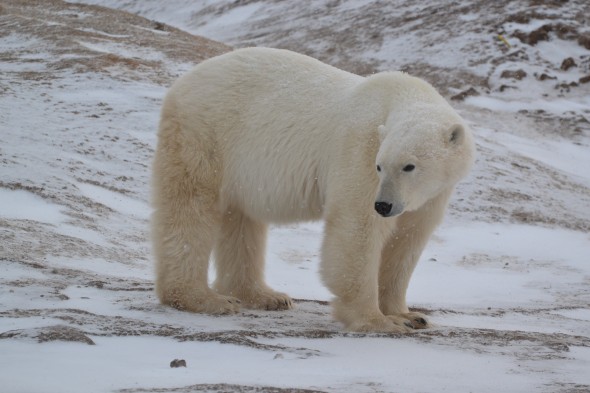The Center for Biological Diversity, a U.S. conservation group, filed a formal challenge today over Canada’s failure to protect polar bears under its Species At Risk Act. The challenge was filed with the Commission for Environmental Cooperation, an entity established by the North American Free Trade Agreement, or NAFTA, to monitor the three signatory countries’ compliance with their own environmental laws.
Earlier this month, the Canadian government completed its long-overdue process to assess the status of polar bears under the country’s Species At Risk Act. However, instead of listing the imperiled bears as “threatened” or “endangered,” the government designated the bears only as a “species of special concern,” which affords the bears no substantive protections.

“Canada is willfully ignoring the deep trouble that polar bears are already in and the likely extinction they face without rapid cuts in greenhouse emissions,” said Kassie Siegel, director of the Center for Biological Diversity’s Climate Law Institute, which successfully petitioned and sued to protect polar bears under the U.S. Endangered Species Act. “Time is running out for the world’s polar bears. They deserve real protection.”
Canada’s decision to withhold meaningful protections for the polar bear was based on an assessment that failed to address the primary threat to the species: the ongoing and projected loss of its sea-ice habitat in the face of global warming. Canada’s listing decision also conflicts with the 2008 U.S. decision to list the polar bear as threatened under its Endangered Species Act and the Polar Bear Specialist Group’s 2005 decision to categorize the polar bear as “vulnerable” due to projected declines from climate change. Scientists say that, without help, more than two-thirds of all polar bears will be gone by 2050 and the rest could be extinct by the end of the century.
Listing polar bears as endangered or threatened under the Species At Risk Act would prohibit some hunting, killing and harm and would establish protected “critical habitat.” The “species of special concern” designation requires only a management plan in three years and no guarantee of actual protections.
Today’s appeal to the Commission for Environmental Cooperation comes as international climate talks get underway in Durban, South Africa. Canada, which has failed to meet its commitments under the Kyoto Protocol, has been widely reported as likely to formally withdraw from the Protocol.
“While the U.S. has a long way to go before it can be said to be doing right by the polar bear, it has at least recognized — unlike Canada — that greenhouse emissions pose a direct threat to the bears’ existence,” said Siegel. “As home to the majority of the world’s polar bears, Canada should be at the forefront of efforts to protect them.”
Leave a Reply